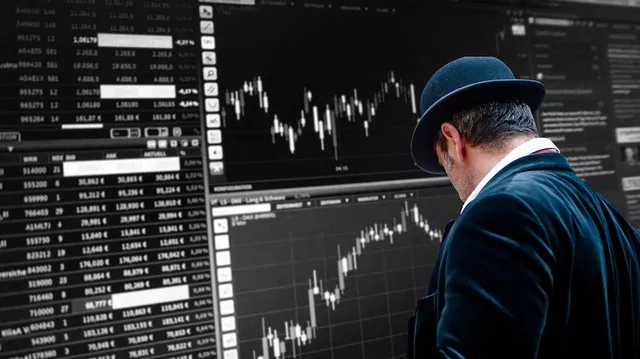In the realm of financial trading, Contracts for Difference (CFDs) and futures contracts are two popular investment instruments. While both offer opportunities for profit through speculative trading, they differ in several key aspects. In this comprehensive article, we will delve into the details of CFDs and futures contracts, highlighting their differences in terms of structure, trading mechanics, risks, and market accessibility. By gaining a thorough understanding of these distinctions, investors can make informed decisions when choosing between CFDs and futures contracts.
Structure and Definition
Contracts for Difference (CFDs):
Definition: CFDs are derivative instruments that allow traders to speculate on the price movements of underlying assets without owning the assets themselves.
Ownership: CFD traders do not own the underlying asset; they enter into a contract with a CFD provider to exchange the difference in the asset’s value between the opening and closing of the trade.
Leverage: CFDs typically offer high leverage ratios, allowing traders to amplify their exposure to the underlying asset. This can lead to significant profits or losses.
Short-Selling: CFDs enable traders to profit from both rising and falling markets by taking long (buy) or short (sell) positions.
Futures Contracts:
Definition: Futures contracts are standardized agreements to buy or sell an asset at a predetermined price and date in the future.
Ownership: Futures contract holders have an obligation to fulfill the contract’s terms, either by delivering the underlying asset (in the case of sellers) or taking delivery (in the case of buyers).
Standardization: Futures contracts have strict specifications regarding the quantity, quality, and delivery date of the underlying asset.
Exchange-Traded: Futures contracts are traded on regulated exchanges, ensuring transparency, liquidity, and standardized terms.
Trading Mechanics
CFDs:
Flexibility: CFDs offer greater flexibility compared to futures contracts. Traders can choose their position size, timeframes, and have more control over their trades.
Pricing: CFDs are typically priced based on the underlying asset’s market price, and traders pay the spread (difference between buying and selling prices) to the CFD provider.
Execution: CFD trades are usually executed over-the-counter (OTC) through CFD providers or brokers, resulting in faster execution times.
Availability: CFDs cover a wide range of financial instruments, including stocks, indices, commodities, and currencies.
Futures Contracts:
Standardization: Futures contracts have standardized terms, including the quantity and quality of the underlying asset, making them more suitable for institutional investors and hedging purposes.
Clearinghouse: Futures contracts are cleared through a centralized clearinghouse, which acts as a counterparty to all trades, ensuring the financial integrity of the market.
Margin Requirements: Futures contracts require traders to post an initial margin as collateral, which is a percentage of the contract’s value. This helps protect against potential losses.
Market Hours: Futures contracts have specific trading hours determined by the exchange on which they are listed, typically mirroring the underlying asset’s market hours.
Risks and Cost Considerations
CFDs:
Counterparty Risk: CFD traders face counterparty risk as they rely on the financial stability of the CFD provider or broker. If the provider defaults, it can lead to potential financial loss.
Overnight Financing: Holding CFD positions overnight may incur financing charges or interest payments, adding to the overall cost of the trade.
Volatility Risk: CFDs are subject to market volatility, and rapid price movements can result in substantial gains or losses.
Regulatory Risk: CFD trading is subject to varying regulatory frameworks in different jurisdictions, with certain restrictions and leverage limitations in place.
Futures Contracts:
Price Fluctuations: Futures contracts are exposed to price fluctuations, and adverse movements can lead to financial
losses.Margin Calls: If the market moves against a futures trader, they may receive a margin call, requiring additional funds to maintain the position.
Limited Liability: The maximum loss for a futures trader is limited to the initial margin posted, providing some protection against extreme market fluctuations.
Exchange Regulations: Futures trading is subject to strict regulations and oversight by exchanges and regulatory authorities, ensuring market integrity.
Market Accessibility
CFDs:
Accessibility: CFDs offer a more accessible entry point to financial markets, as they require lower capital requirements and do not have the same level of regulatory restrictions as futures contracts.
Global Markets: CFDs allow traders to access global markets and trade various assets without geographic limitations.
Short-Term Trading: CFDs are popular among short-term traders due to their flexibility and ability to profit from both rising and falling markets.
Futures Contracts:
Institutional Focus: Futures contracts are more commonly utilized by institutional investors, such as hedge funds, commodity trading firms, and large financial institutions.
Risk Management: Futures contracts are often used for risk management and hedging strategies, providing a means to protect against adverse price movements in the underlying asset.
Commodity Exposure: Futures contracts are widely used for trading commodities, allowing investors to gain direct exposure to agricultural products, energy resources, metals, and more.
Conclusion
In summary, CFDs and futures contracts are distinct investment instruments with different structures, trading mechanics, risks, and market accessibility. CFDs offer flexibility, leverage, and broader market accessibility, catering to individual retail traders. Futures contracts, on the other hand, are standardized, exchange-traded instruments suitable for institutional investors and risk management purposes. Understanding these differences is crucial for investors to select the most appropriate instrument based on their trading objectives, risk tolerance, and market expertise.


